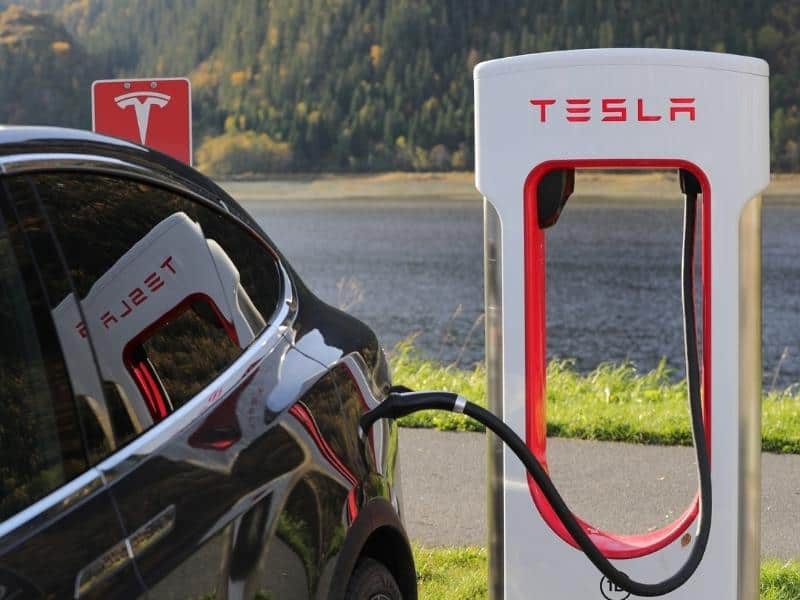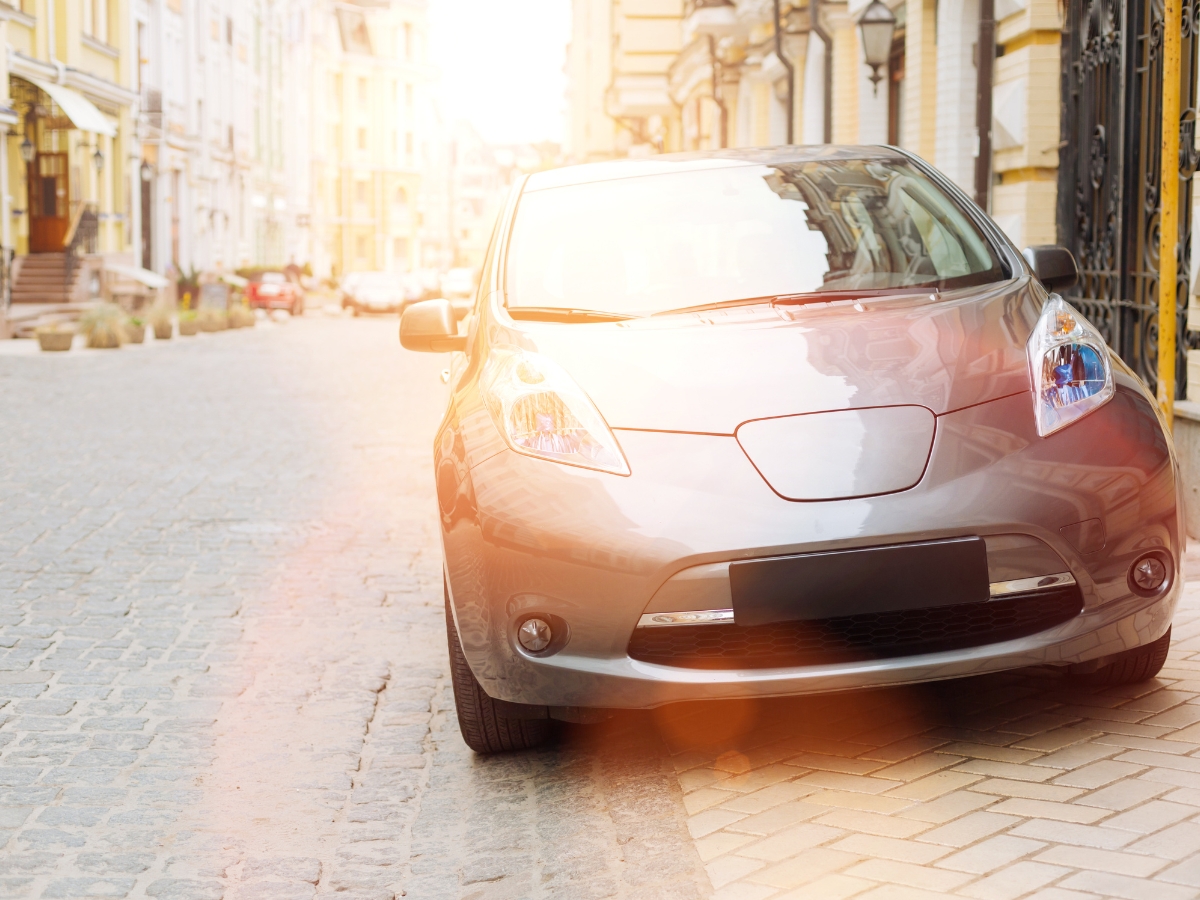When it comes to the finer details of cars, such as what type of oil or parts they require, it can sometimes be challenging to know for sure, especially if you’re not a mechanic!
Having worked on cars and their components in the automotive industry for years, I understand entirely, so let’s look at whether electric cars use oil.
Here are some key points we’ll cover, as well as other critical information:
- Is it necessary to put oil in an electric car
- What fluids are essential for electric cars
- Maintenance for electric cars
- The types of electric car fluids
- Answering why something is required
Electric car maintenance is easier than you think; continue reading to see why!

Do Electric Cars Use Oil?
Electric cars do not use oil because their engines have no moving parts, and so it does not generate friction. They are powered by electricity stored in batteries that rotate the car’s motor and move the wheels.
A traditional car requires oil because its combustible engine has pistons, valves, valve springs, connecting rods, crankshafts, bearings, cylinders, and other moving parts that make the car move.
When these parts move together, it creates friction that causes heat, corrosion, and wear-and-tear; oil reduces the effects of that friction. When the components pass one another, it creates atomic metal flakes in the oil due to all the metal-on-metal contact.
Moving Parts
As a result, you need to drain the old oil and replace it; otherwise, if left for too long, the atomic-flaked oil will start to deteriorate the components inside the engine.
One of the most significant advantages of having an electric car is that it has fewer moving components and requires less maintenance. Electric vehicles move by using a battery to power an electric motor.
Since electric cars don’t have engines with moving parts to lubricate, oil changes are not necessary. Furthermore, because electric vehicles have different drivetrains than standard automobiles, you will never need to bother about routine oil changes.
What Fluids Do Electric Cars Need?
Battery Electric Vehicles (BEVs) require the following fluids to function correctly:
- Brake fluid
- Steering fluid
- Transmission fluid
- Thermal fluid
- Grease
Electric Cars Need Brake Fluid
Another necessary lubricant required by all cars is brake fluid. It’s a sort of hydraulic fluid utilized to maintain pressure and increase braking force while using brakes.
Most braking fluids are synthetic and approved by the DOT (Department of Transportation) in electric vehicles. In particular, DOT 3 brake fluid is one of the most extensively utilized brake fluids, and it’s even used in Tesla’s electric automobiles.
Electric Cars Need Steering Fluid
Electric cars usually have electronic power steering (EPS), which does not require any fluids. However, there are some electric vehicles hydraulic steering, and these types will require steering oil.
Electric Cars Need Transmission Fluid
Transmission fluid is required for smooth gear changing in all cars, regardless of their engine; every transmission system comprises of mechanical components that mesh together, such as several gears and shafts.
Electric automobiles come with a single-speed gearbox rather than a multi-gear one. As a result, transmission oils are required to maintain efficiency and dependability.
Electric Cars Need Thermal Fluid
Because electric vehicle cooling systems are one of the most critical components determining its longevity, thermal fluids are created to maintain the battery’s ideal temperature and other electrical equipment.
Thermal fluids, which circulate through pipes and regulate temperature, cool the batteries in electric automobiles.
The thermal fluid functions and serves the same purpose as coolants in older automobiles.
Electric Cars Need Grease
Even for electric cars, grease remains one of the most significant lubricants in the mechanical sector, and it serves a variety of purposes.
Grease, in general, reduces friction, wear, and tear, and extends the life of all machinery.
Mainly, grease may be found in electric motor components, suspension systems, wheel bearings, door locks, and a variety of other elements in electric automobiles.
What Kind Of Maintenance Do Electric Cars Need?
Unlike traditional vehicles with a wide range of parts that must be maintained (spark plugs and oil changes), some electric car maintenance involves:
- Wipers
- Electric car engine (battery)
- Brake pads
- Fluids
Maintain The Wipers On An Electric Car
Windscreen wipers on electric vehicles are standard, and they must be maintained in the same manner as they would be on a regular automobile. Wiper blades should be replaced twice a year, preferably at the beginning of winter and summer.
Maintain The Electric Car Engine (Battery)
Over time, the EV battery will become less effective and may need to be replaced. It isn’t considered “regular maintenance,” though, because they may endure for more than a decade.
Many manufacturers provide an eight-year guarantee on battery drivetrain components with an average mileage of 125,000 miles.
Maintain The Brake Pads On An Electric Car
Even with an electric vehicle, it is critical to keep the brake pads in good condition. It is, however, considerably more straightforward to perform because of its “regenerative braking” feature.
When a traditional automobile stops, energy is lost in the process; regenerative braking helps avoid energy loss.
Instead, pressing the brake pedal in an electric car causes the engine to reverse, slowing the car’s wheels while also generating energy that is transferred to the car’s batteries for later use.
Maintain The Fluids On An Electric Car
Coolant fluid, brake fluid, and windshield washer fluid are the only three primary fluids that need to be topped up regularly in electric vehicles. Most green cars are like this, but some may differ.
For example, the Tesla Model S gearbox includes transmission oil that has to be replaced regularly.
How Often Should Electric Cars Be Serviced?
Check your manufacturer’s service manual, contact your manufacturer, or view the onboard computer on when to service your electric vehicle; each manufacturer has different requirements.
The manufacturer’s service schedule should be found in your owner’s handbook. Generally, electric automobiles are often serviced at the same intervals as conventional cars.
Your need for a service will be dependent on time and distance and differ between manufacturers.
A Nissan Leaf, for example, will require service once a year or 18,000 miles, whichever comes first, but a Porsche Taycan will need a service every two years or 20,000 miles.
Because an electric automobile has fewer moving parts, there will be fewer things to examine during service, and you will probably require fewer repairs.
Because mechanics are more accustomed to combustion engines, it may be slightly more challenging to get your electric car serviced and repaired locally in the short term.
However, major retailers are offering EV (electric vehicle) services, and smaller garages educate their technicians to handle EV repairs, so it is unlikely that the issue will persist in the foreseeable future.
Sources
- https://www.theaa.com/driving-advice/electric-vehicles/electric-car-maintenance
- https://www.cnbc.com/advertorial/2019/01/10/lubricating-electric-vehicles.html
- https://www.mckinsey.com/industries/automotive-and-assembly/our-insights/ev-fluids-say-goodbye-to-the-oil-change
- https://afdc.energy.gov/vehicles/electric_maintenance.html
- https://www.autocar.co.uk/car-news/advice-electric-cars/how-maintain-and-service-your-electric-car
- https://www.kia.com/mu/discover-kia/ask/do-electric-cars-need-oil-changes.html#:~:text=%E2%80%9CEVs%20do%20not%20require%20oil,not%20the%20oil%20mandatory%20engines.%E2%80%9D
- https://www.treehugger.com/do-electric-cars-use-oil-5184365



